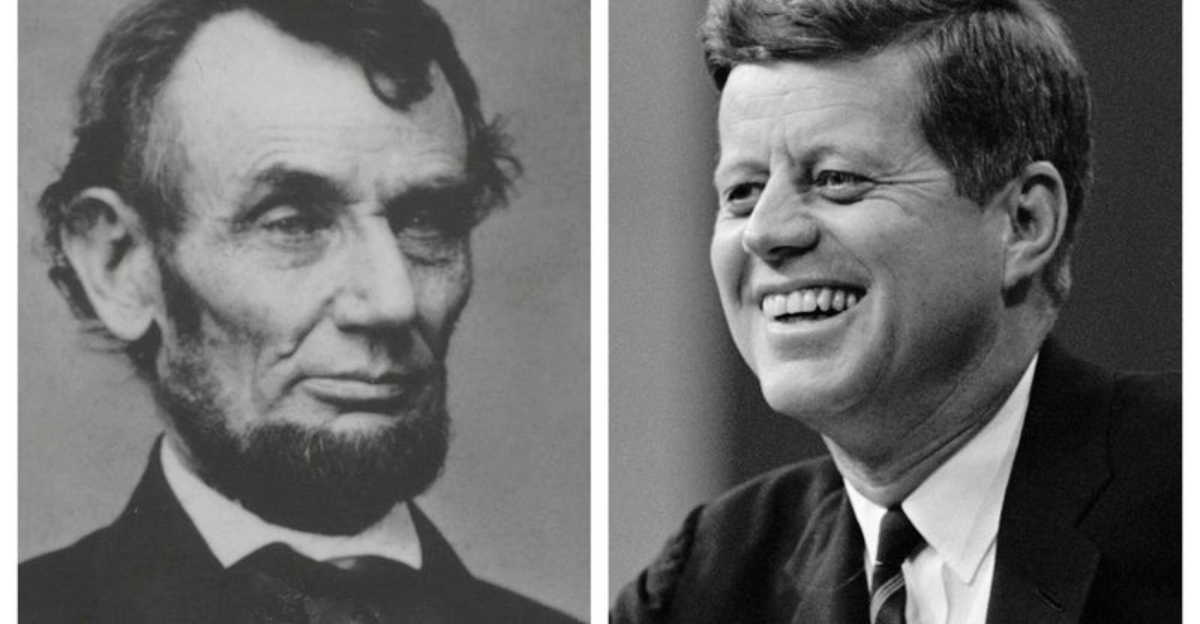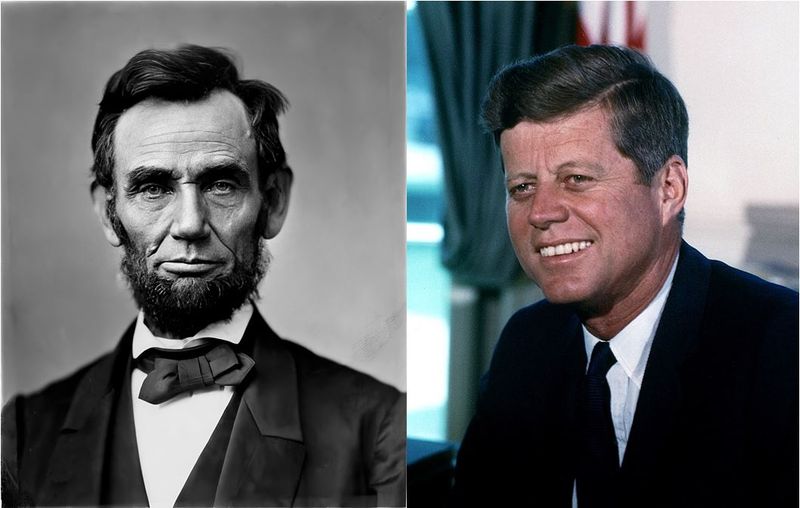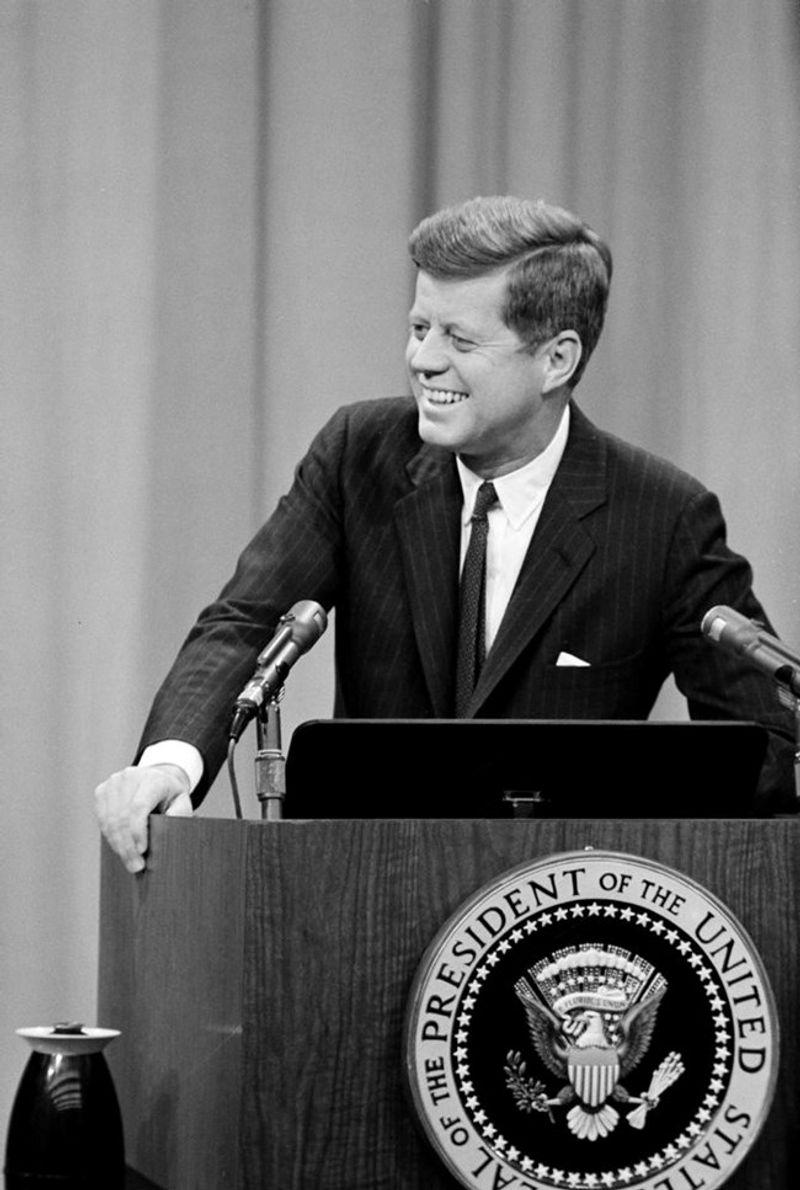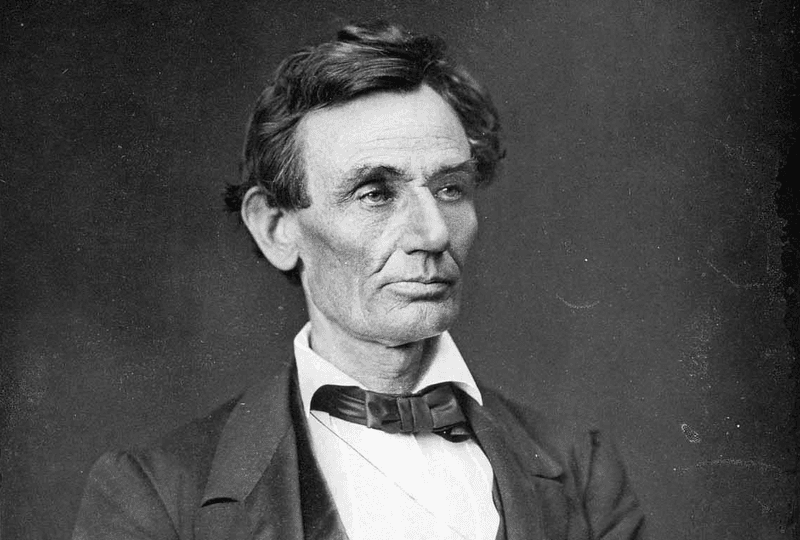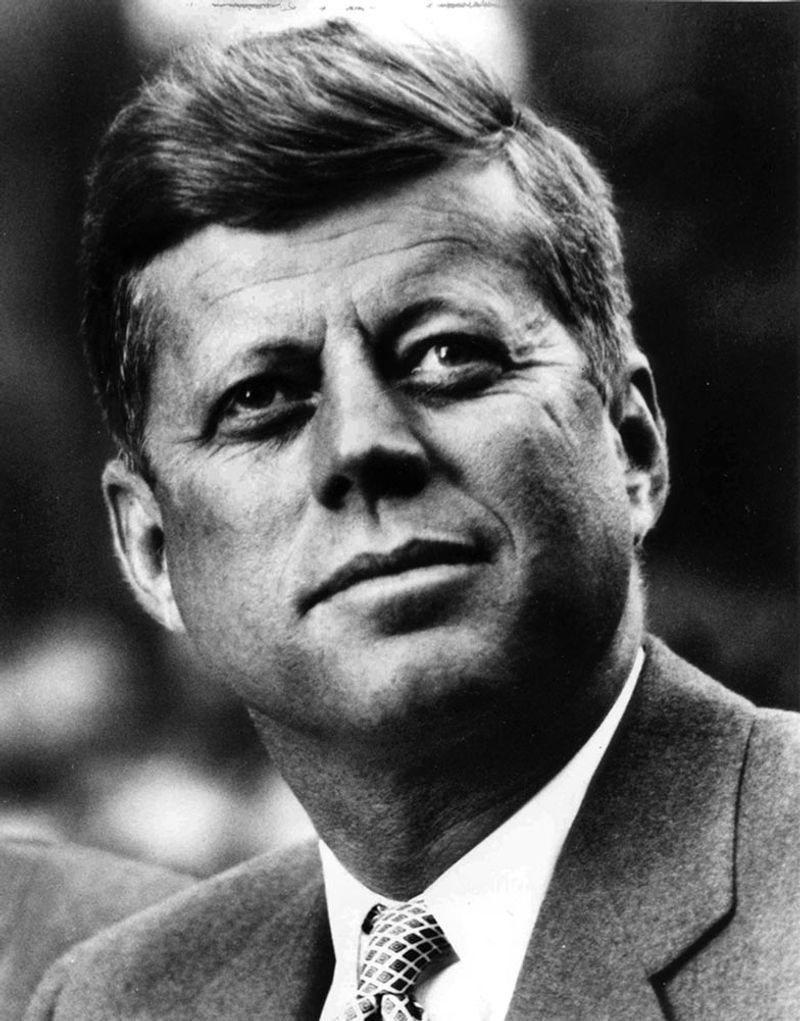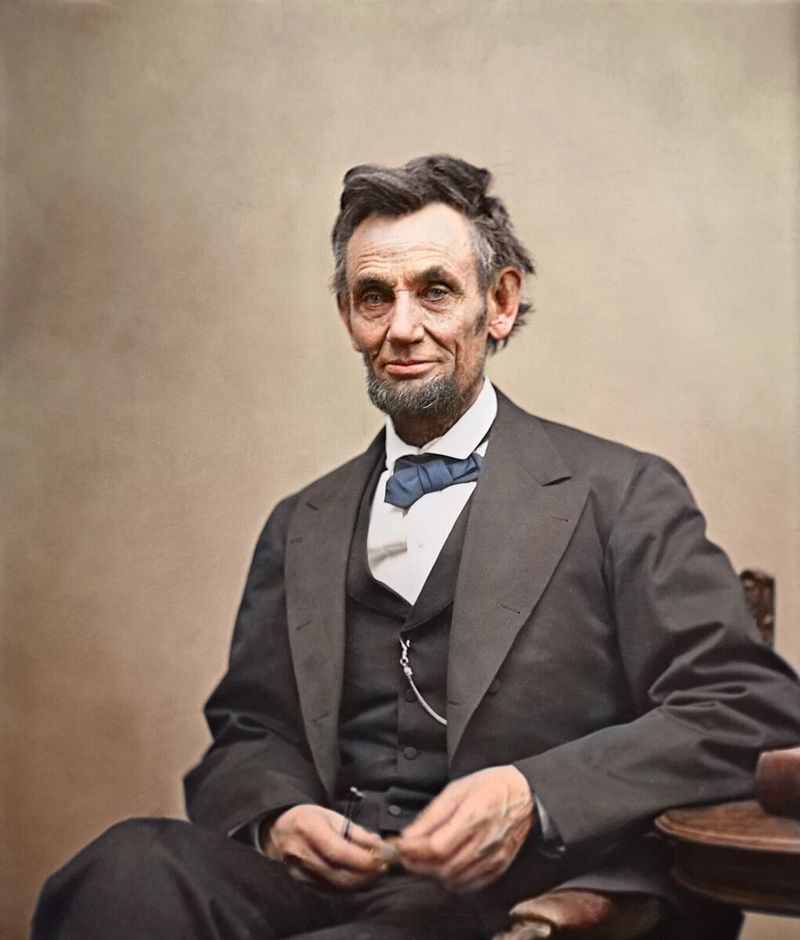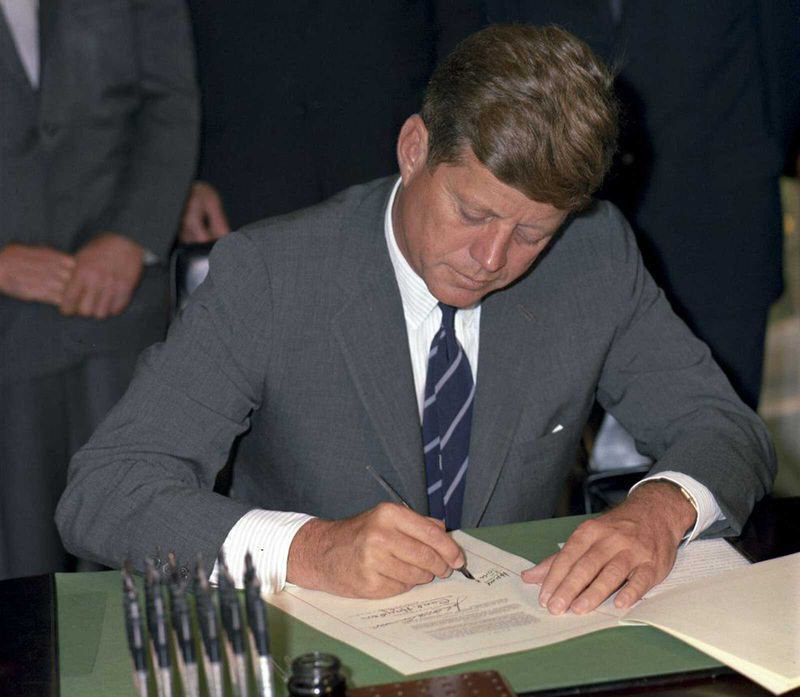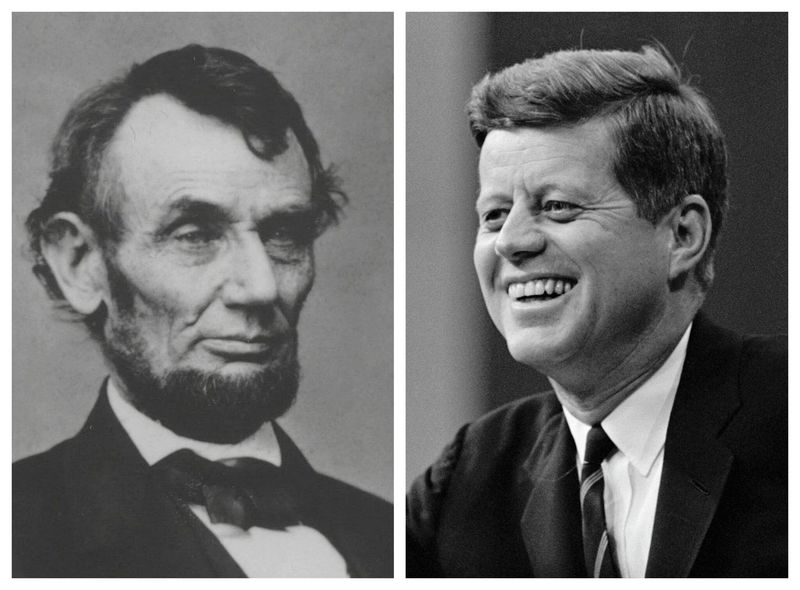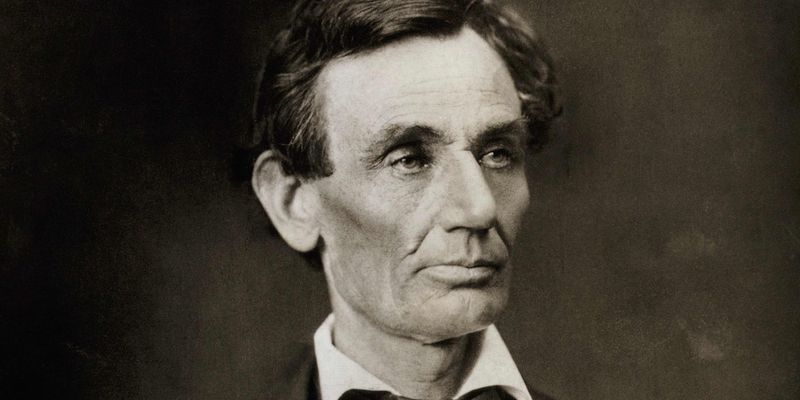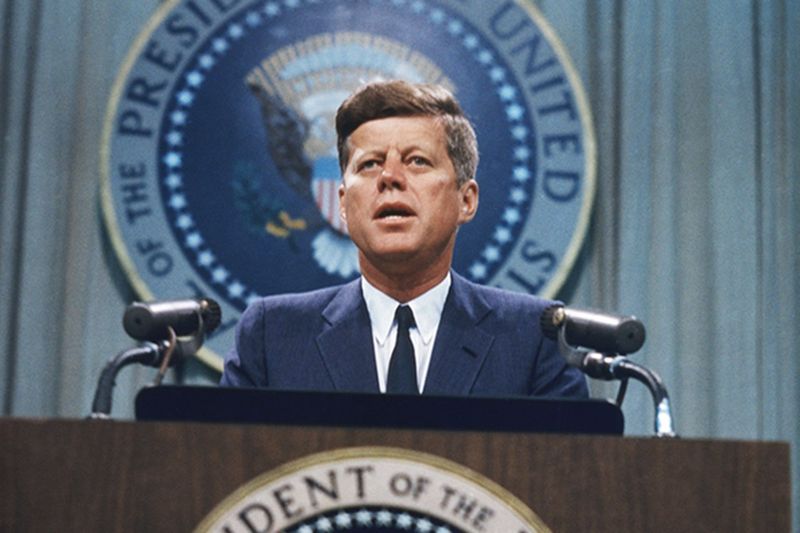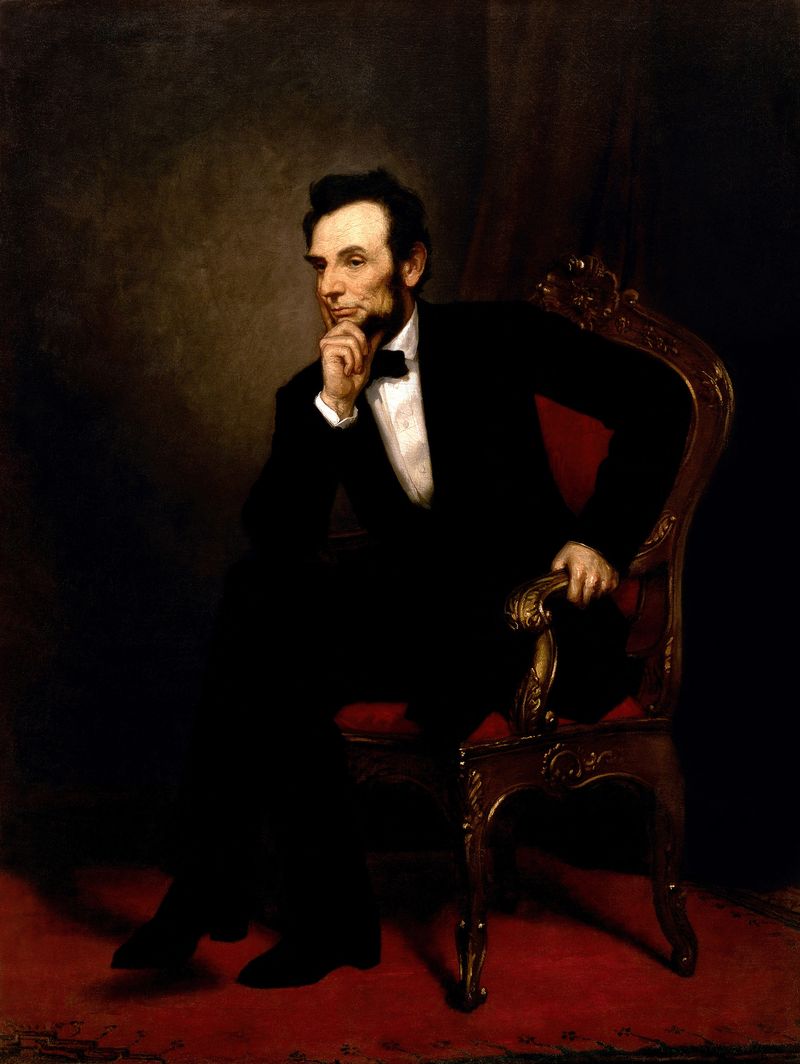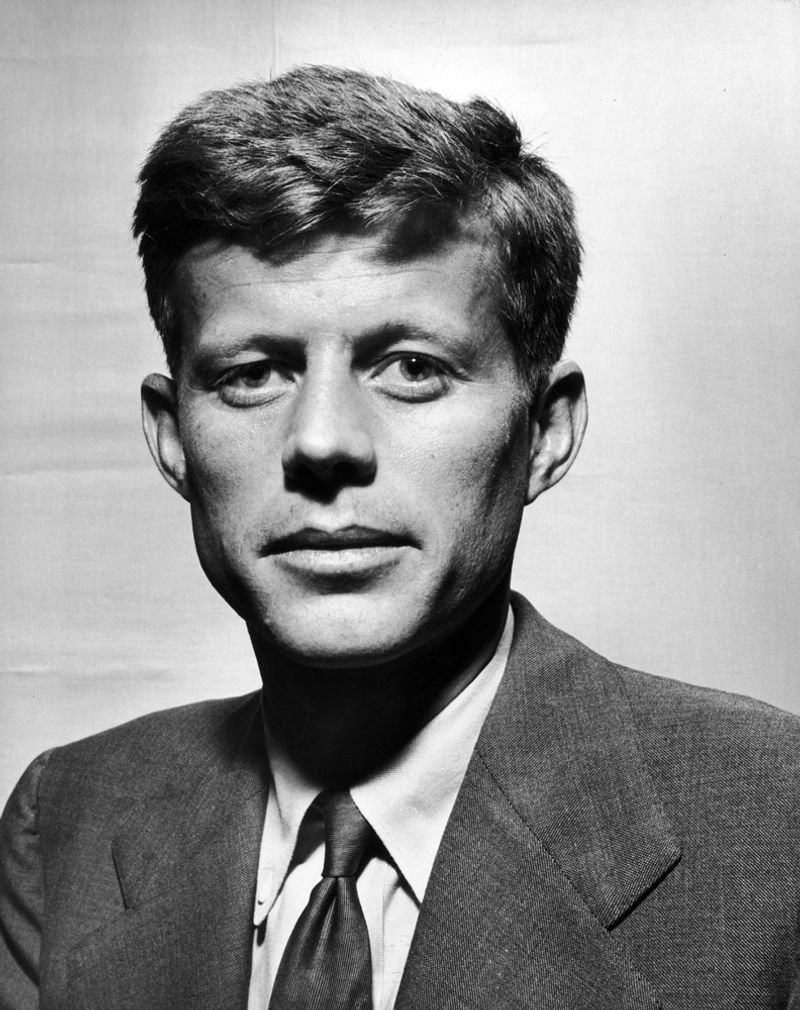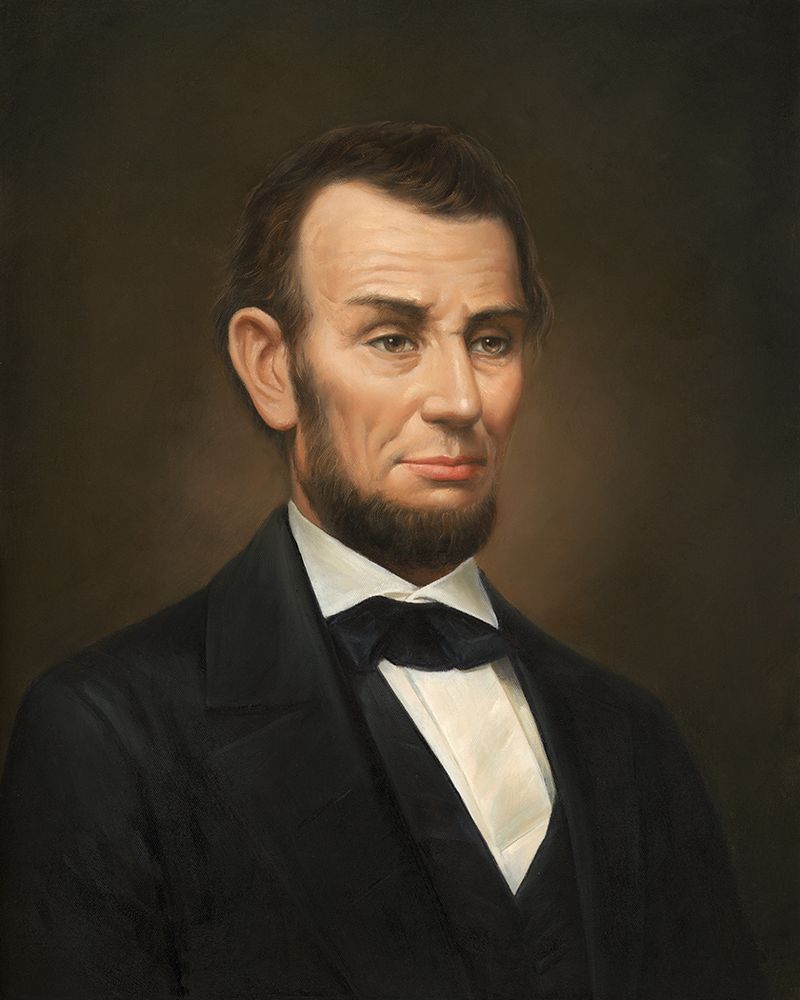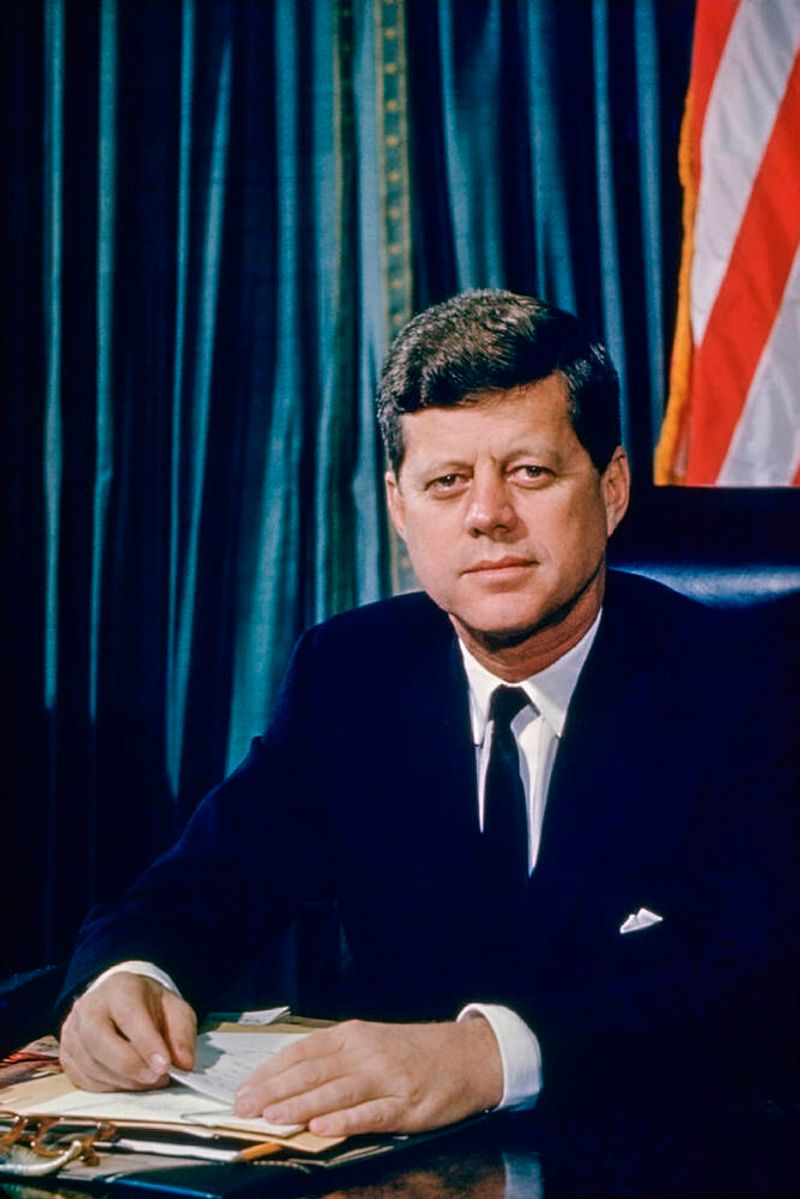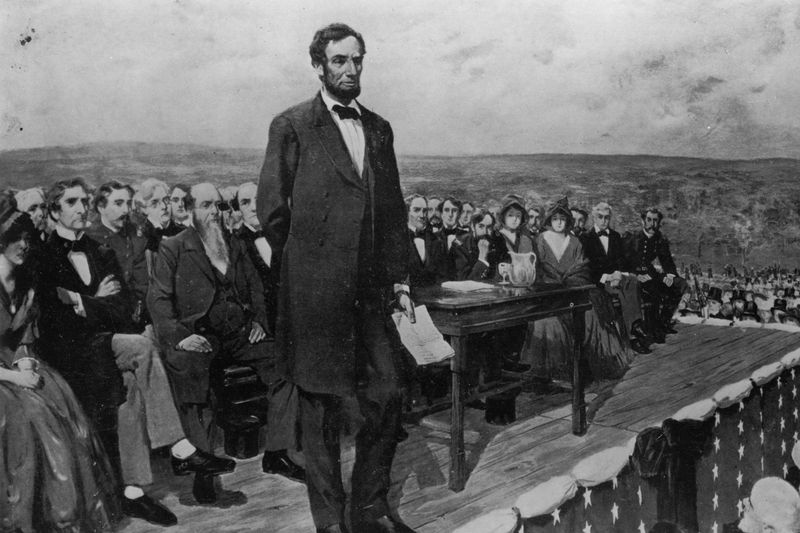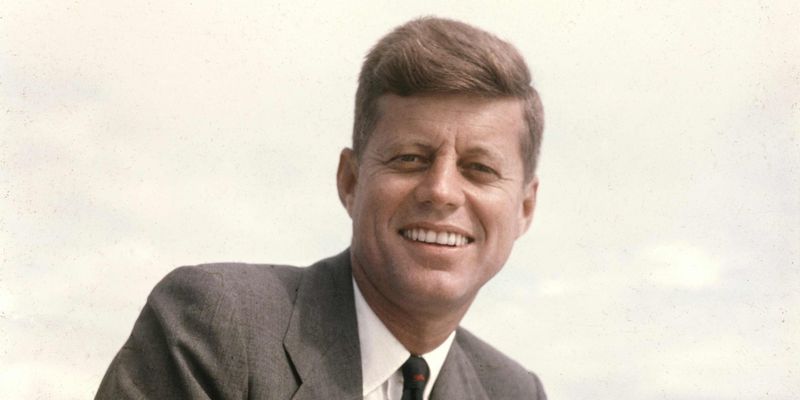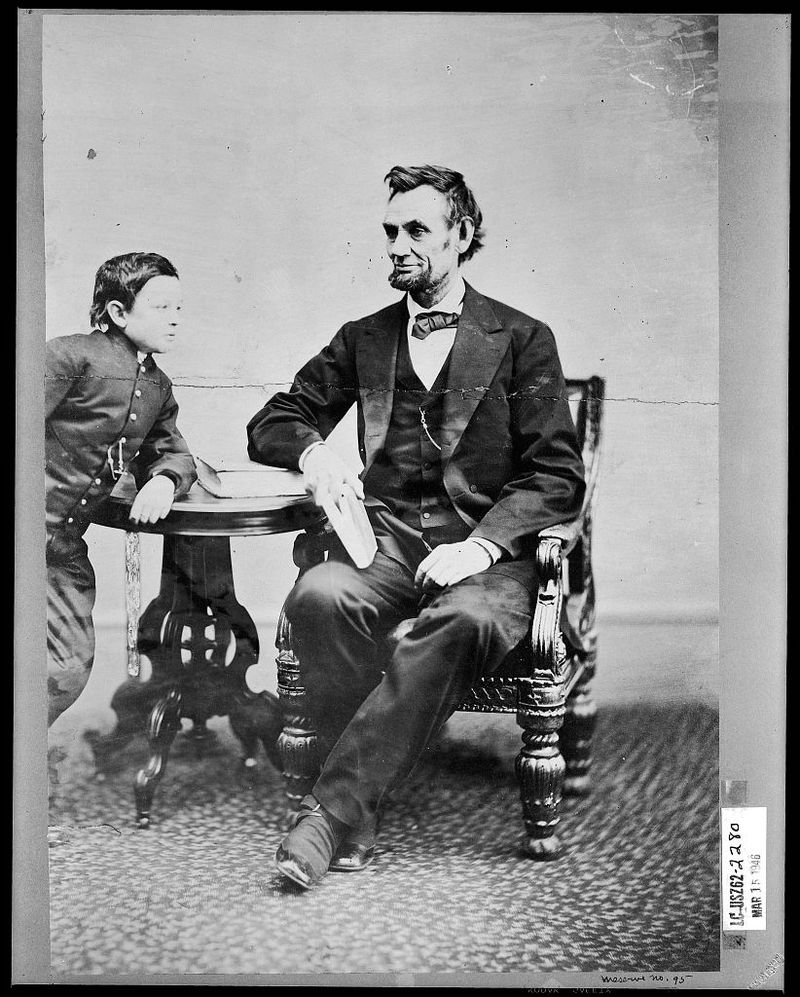Explore the eerie parallels between two iconic American presidents, Abraham Lincoln and John F. Kennedy. From their elections to their tragic assassinations, these coincidences will leave you pondering the mysterious threads of history that connect them.
Both presidents were leaders during pivotal times in American history, and their legacies continue to captivate the world. Delve into these 16 uncanny similarities and see just how deeply intertwined their stories are.
1. Both Were Elected to Congress 100 Years Apart
In an intriguing historical twist, both Abraham Lincoln and John F. Kennedy began their legislative journeys a century apart. Lincoln was elected to Congress in 1846, marking the start of a political career that would shape a nation. His earnest desire for unity and freedom echoed through the halls of power.
One hundred years later, in 1946, Kennedy was elected to Congress. His youthful charisma and forward-thinking policies captured the hearts of many. The mirrored timing of their congressional elections is just the beginning of many fascinating parallels that bind these two leaders across time.
2. Both Were Elected President 100 Years Apart
Lincoln stepped into the presidency in 1860, a leader determined to guide a divided nation through the stormy seas of the Civil War. With resolve etched in his gaze, he sought a brighter future for all.
In 1960, Kennedy assumed the presidential mantle, echoing Lincoln’s commitment to progress and unity but in a modern era. His promise of a new frontier resonated with a generation on the cusp of change. This centennial symmetry in their presidential elections highlights a mysterious connection, as each took office during times of national upheaval.
3. Both Were Succeeded by Men Named Johnson
Andrew Johnson, born in the early 19th century, took over the reins after Lincoln’s untimely death. His presidency marked a critical juncture in post-Civil War America, as he navigated the complexities of Reconstruction.
A century later, Lyndon B. Johnson stepped into Kennedy’s shoes amid the tumult of the 1960s. His leadership steered the nation through significant social reforms and the Civil Rights Movement. Both Johnsons, linked by name and circumstance, were thrust into the national spotlight, forever entwined with their predecessors’ legacies.
4. Both Johnsons Were Born 100 Years Apart
Andrew Johnson was born in 1808, stepping into a world still forming its identity. His rise from humble beginnings to the presidency reflects the American dream’s resilience.
Fast forward to 1908, and Lyndon B. Johnson entered a rapidly changing world. His journey from the Texas hills to the White House mirrored the nation’s evolution. The century gap between their births adds another layer to the Lincoln-Kennedy enigma, as both Johnsons emerged during pivotal times, ready to lead in complex eras of American history.
5. Both Presidents Were Shot on a Friday
Good Friday, April 14, 1865, witnessed the tragic shooting of Abraham Lincoln, an event that sent shockwaves through a grieving nation. The end of the Civil War was marred by this unprecedented act of violence.
Almost a century later, on Friday, November 22, 1963, Kennedy’s assassination plunged America into mourning once more. The symmetry of their deaths on Fridays weaves an unsettling thread in the tapestry of history, illustrating how both leaders’ lives were abruptly ended on the cusp of major societal changes.
6. Both Were Shot in the Head
Both presidents met their fate through a single, fatal shot to the head, a chilling commonality that underscores their tragic ends. Lincoln, assassinated in Ford’s Theatre, and Kennedy, in a Dallas motorcade, were both the targets of public spectacles.
Their assassinations, etched into the national memory, serve as stark reminders of the violence that cut short their visions. The eerie similarity in how they were killed speaks to the shared vulnerabilities of leaders in the public eye, forever linking the two in a narrative of tragedy.
7. Both Were in the Company of Their Wives When Shot
During their final moments, both presidents were accompanied by their devoted wives. Mary Todd Lincoln and Jacqueline Kennedy stood by their spouses, witnessing the inconceivable.
The presence of their partners in such tragic circumstances adds a personal and emotional layer to their stories. Both women, pillars of strength, were thrust into the spotlight, left to navigate the aftermath of national tragedy. This shared experience of loss deepens the bond between the two presidential couples, highlighting the personal costs of political life.
8. Both Were Killed by Southerners
John Wilkes Booth, a fervent supporter of the Confederacy from Maryland, assassinated Lincoln, believing he was striking a blow for the South. His act was rooted in the turmoil of a nation divided.
Decades later, Lee Harvey Oswald, born in New Orleans, Louisiana, and accused of killing Kennedy, had his own complex motivations. While their reasons differed, both assassins hailed from Southern backgrounds, adding a geographical twist to the mystique surrounding these two historical figures. Their actions, forever intertwined, reflect the regional tensions of their times.
9. Both Were Killed Before Major Civil Rights Movements
Lincoln’s assassination came on the heels of the Civil War, just as he was poised to unify a fractured country and usher in a new era of equality. His vision was left unrealized, sparking a long journey toward civil rights.
Kennedy’s death occurred before he could fully implement his civil rights agenda, with significant legislation passing posthumously. Both presidents, removed from the stage before their time, left a legacy that fueled future generations’ fight for equality. Their untimely deaths underscore their unrealized dreams of justice and progress.
10. Lincoln Had a Secretary Named Kennedy (Supposedly)
A curious legend suggests that Lincoln had a secretary named Kennedy, though historical evidence remains elusive. This tale, woven into the fabric of their stories, adds a mythical dimension to their connection.
Despite the lack of concrete proof, the mere existence of such a rumor perpetuates the enigma surrounding these two leaders. The allure of this tale lies not in its factual accuracy, but in its contribution to the rich tapestry of myths and mysteries that link Lincoln and Kennedy, enhancing the intrigue of their shared narrative.
11. Kennedy Had a Secretary Named Lincoln
Evelyn Lincoln, John F. Kennedy’s diligent secretary, played a significant role in his administration. Her name, Lincoln, only adds to the swirling mysteries surrounding these two presidents.
A dedicated aide and confidante, she is known for her eerie warning against his Dallas trip. Her presence and name create another fascinating link to Abraham Lincoln, intertwining their stories further. Evelyn Lincoln’s loyalty and insights are remembered as part of the legacy of a president who, like Lincoln, was surrounded by fateful coincidences and tragic destiny.
12. Both Assassins Were Known by Three Names
John Wilkes Booth and Lee Harvey Oswald, both remembered infamously, share an unusual characteristic: their full names contain exactly 15 letters. This detail, a small yet intriguing coincidence, fuels the mystique of their actions.
These names, etched in history, conjure images of their devastating deeds. The numerical symmetry in their names adds a peculiar detail to the tapestry of coincidences that link the killers of these presidents. Such minutiae invite endless speculation about the oddities that connect Lincoln and Kennedy across decades.
13. Both Assassins Were Killed Before Their Trials
Neither John Wilkes Booth nor Lee Harvey Oswald lived to stand trial for their heinous acts. Booth, cornered in a barn, met his end at the hands of Union soldiers seeking justice for Lincoln’s murder.
Oswald, arrested and charged for Kennedy’s assassination, was fatally shot by Jack Ruby, sealing his fate before he could face the court. This shared fate of dying before trial adds another layer to their infamous stories, leaving questions unanswered and cementing their roles in the tragic narratives of two American leaders.
14. Booth Fled a Theater and Was Caught in a Warehouse; Oswald Did the Reverse
John Wilkes Booth’s escape from Ford’s Theatre led him to a rural barn, a setting akin to a warehouse, where his flight ended. His desperate attempt to evade capture altered the course of his grim destiny.
Conversely, Lee Harvey Oswald began his deadly act from a warehouse, only to be apprehended in the confines of a Dallas movie theater. This reversal of locales paints a chilling picture of the symmetry that follows both assassins, further entwining their stories with the presidents they targeted.
15. Both Presidents Left Behind Young Children
The tragedies left both Lincoln and Kennedy’s children fatherless at tender ages. Tad and Robert Lincoln, thrust into the spotlight, bore the weight of a nation’s mourning.
Similarly, Caroline and John Jr. Kennedy faced a world forever changed, navigating life under the shadow of their father’s legacy. The presence of young children in both tragedies deepens the emotional impact of these assassinations, highlighting the personal toll on the families left behind. Their stories evoke a poignant reflection on the cost of leadership and loss.
16. Coincidence or Something More?
The uncanny parallels between Abraham Lincoln and John F. Kennedy have captivated imaginations for decades. These coincidences, woven through their lives and deaths, invite endless speculation. Are these parallels mere chance or threads of a deeper connection?
While many believe them coincidental, the allure of these mysteries endures. They offer a glimpse into how history can echo across time, binding leaders in unexpected ways. The Lincoln-Kennedy coincidences continue to fascinate, posing questions about fate, destiny, and the enigmatic patterns that shape our past and present.
